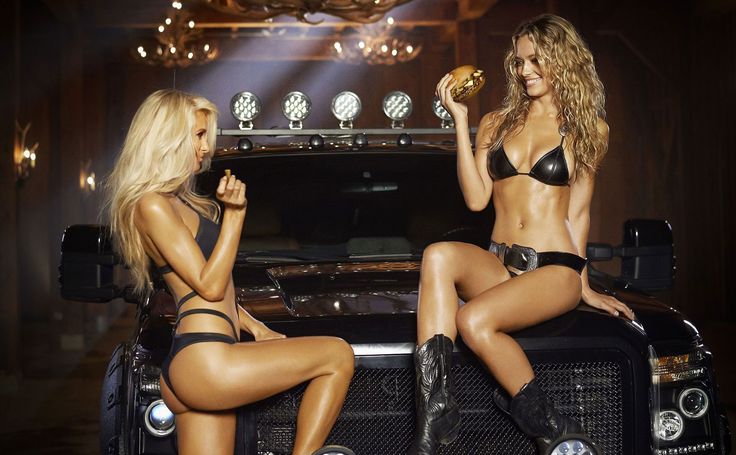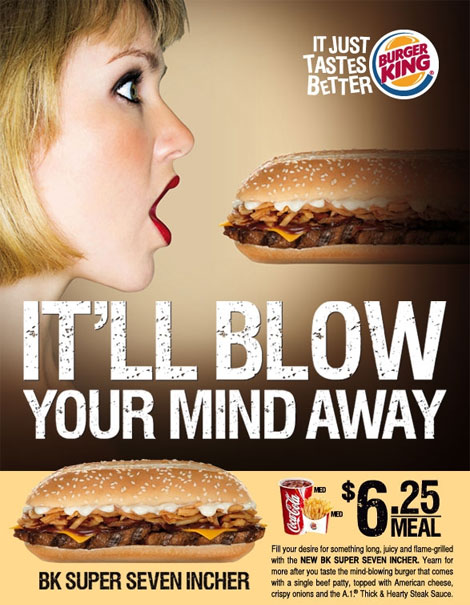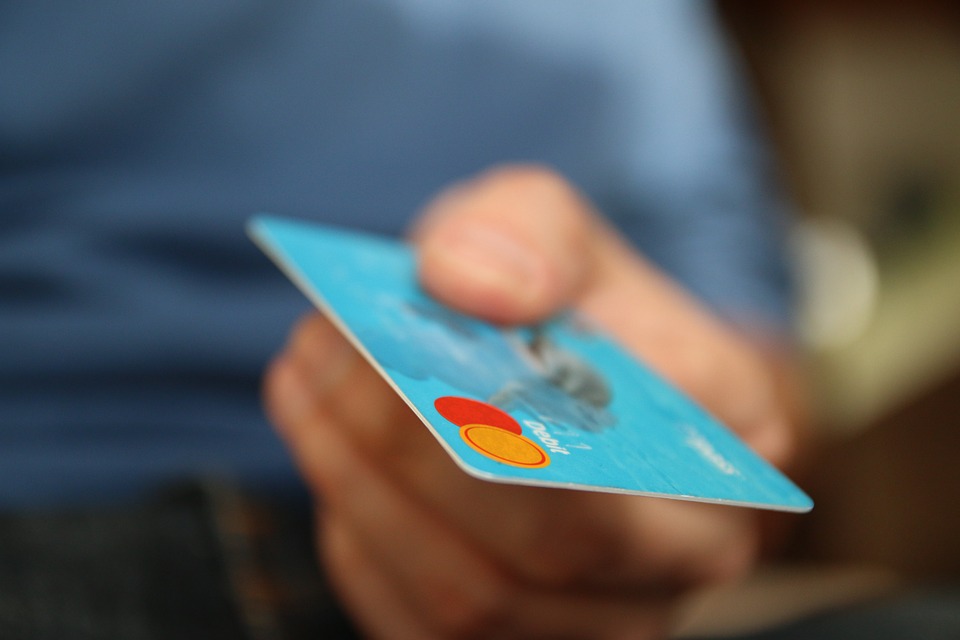Sex sells. This is a phrase we have heard over and over again. Upon discovery that sex sold, using sex in ads increased steadily. From 1983 to 2003, the use of sex in ads increased from 15% to 27%.
The simple explanation is this: advertisers saw an opportunity before them and decided to go for it. Sexual ads caught people off guard, garnered attention, got people talking, and were successful from the advertiser’s point of view. Attractive and scantily clad models in advertising increased product exposure and interest from the start.
Food advertising is no exception to this tactic, as you know if you own a television. Along with fashion and cosmetics, food-related companies are common users of provocative advertising.
One of the most frequent and prominent users is Carl’s Jr./Hardees. Since the early 2000’s, Carl’s Jr. has created ads featuring half-naked women eating their food and making a mess, using their bodies to increase their revenue. Isn’t there a limit to the number of times a person can watch Paris Hilton washing a car in attempt to sell a BBQ burger?
Common in the beer industry as well, ads like these set a precedent for the value of women in advertisements. It furthered the negative history of gender roles in society; presenting women as objects, and reducing their value to the way they look and their ability to be submissive.

Courtesy of Carl’s Jr
Not only has sexy advertising increased, but the majority of these ads only feature females (about 78%). As time goes on, the ads keep getting more ridiculous and inappropriate. We may as well be watching porn stars laugh and eat salads while throwing dressing at each other in between episodes of The Big Bang Theory. Is this the only way advertisers can market to their consumers?
Most sexualized ads target only men, which makes sense as their target market is mostly male. Even with men, however, sexy ads can get old. Men may be able to remember the ad due to its provocative nature, but will they be able to remember the brand? This is a common problem in advertising. Companies make provocative ads that catch people’s attention, but consumers can’t remember who was promoting the product.

Courtesy of Burger King
More importantly, advertisers are alienating a large number of possible consumers. There’s half a population that they are missing out on and mistreating, and those are the women. Seeing the way women are treated in advertising has become an important part of the way people consume.
52% of women said that they have purchased a product because they liked the way the women in the ads were portrayed. 94% of women believe that portraying women as sex symbols in advertising is harmful. 94% of women represents a lot of purchasing power. These women could make or break a company.

Courtesy of Pixbay
In addition, in the past few years of Super Bowl ads those that featured sexual content were rated much lower than those without. People would much rather see puppies than a girl eating chips seductively.
Sex isn’t the only thing advertisers can use to sell products, and sex shouldn’t be a viable way to sell. Showing women acting normally simply works, and showing empowered women does even better. Many advertising agencies are standing against sexualized advertising and vow to stop objectifying women in their ads.
Many companies have started to create advertisements that support and empower women, like Dove and P&G. It’s time more food-related companies follow that model as well.
This is the direction all advertising agencies and companies should follow and hope for in the future. Women are not objects for entertainment and arousal. Women are not to be objectified to make a profit. Women are people and deserve the right to be treated as human beings. This is for the good of the women today and for the good of the women of the future.


